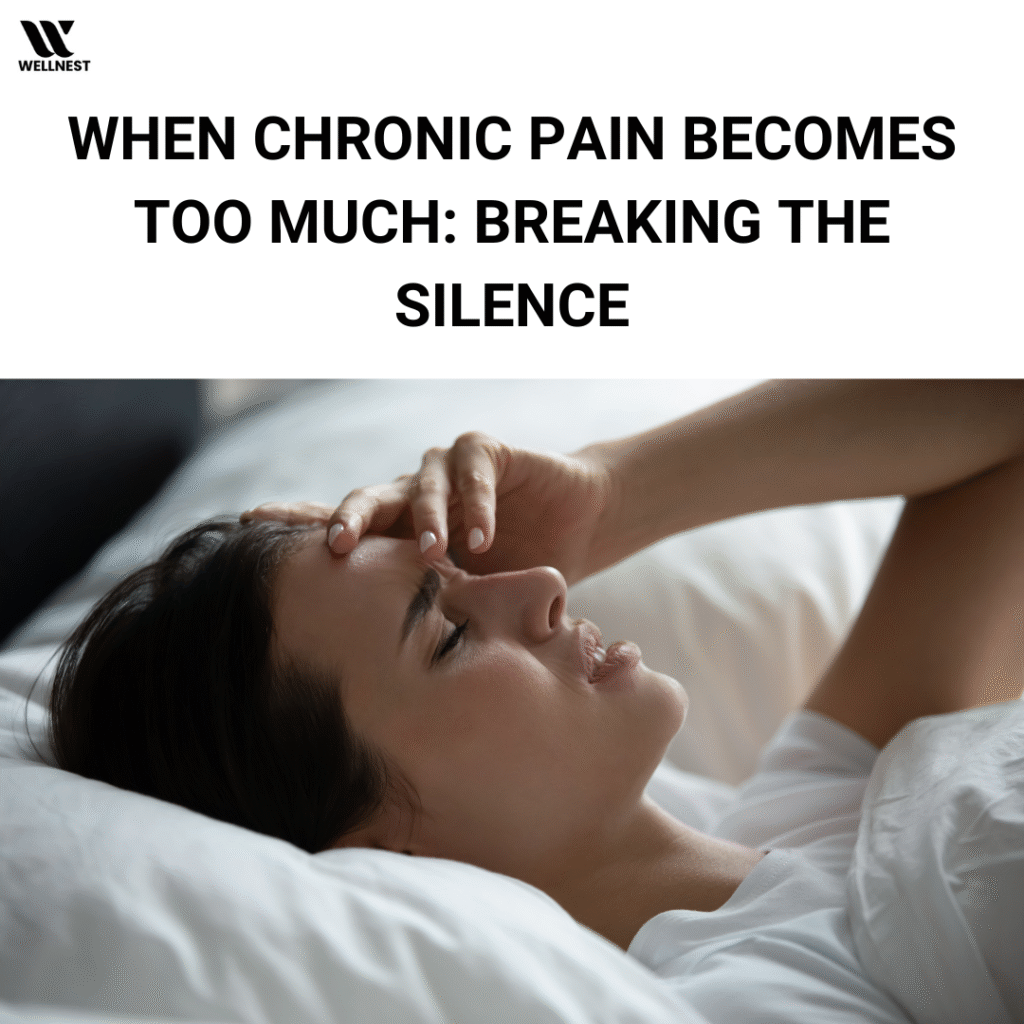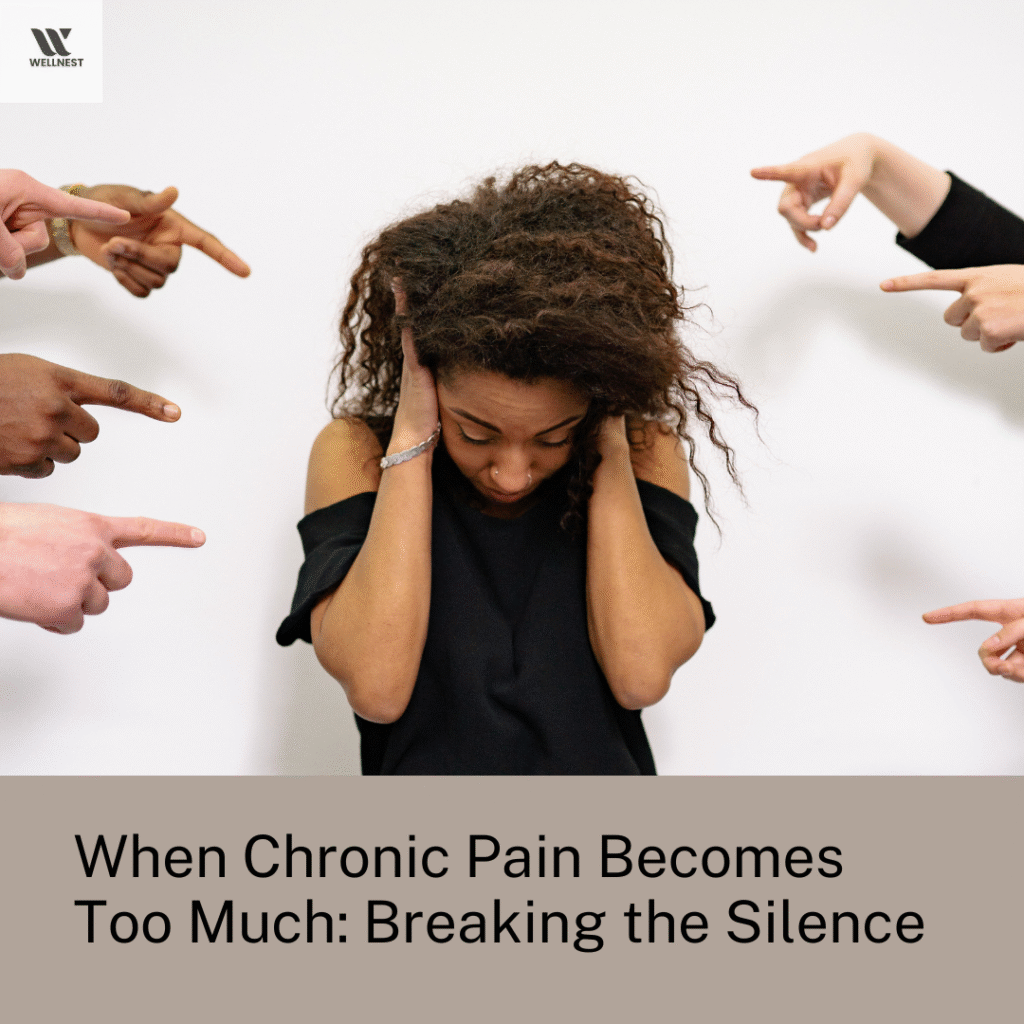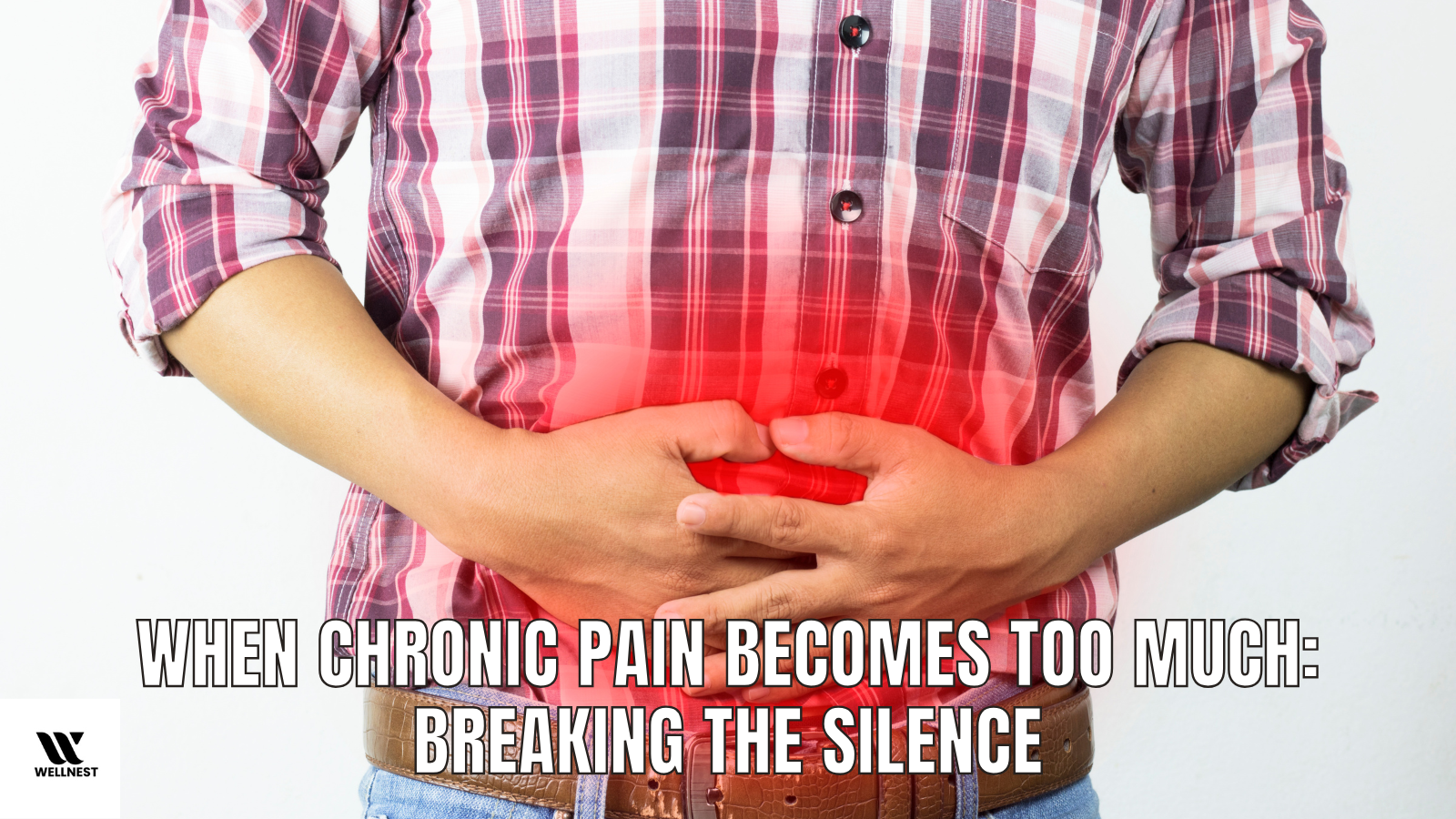The experience of chronic pain, as if holding onto an invisible barbell that somehow never gets taken away. It’s not “just a sore back” or a migraine — it’s an ongoing fight that impacts your body, mind and relationships.
In this comprehensive guide, we’re going to discuss what happens when chronic pain crosses the line and becomes too much, why it feels like it’s unbearable and ways to get back on top of things with real life strategies, emotional tools and proven therapies.
Is It Worth Living with Chronic Pain? Finding Purpose Amid the Struggle
If you live in chronic pain, it’s all too easy to wonder: Is life worth living with such despair?
Pain can rob us of careers, independence, even identity — but it need not steal our sense of purpose.
“Me, I lost my job, my hobbies and also my confidence. But therapy and peer support helped me begin to reassemble one small victory at a time.”
—Tom Bowen, chronic pain survivor
According to the Cleveland Clinic, over 20% of U.S. adults have chronic pain and 67% also suffer from debilitation depression or anxiety related to their condition. It is this emotional price that I have experienced and it’s so much worse than the physical pain.
If you ever feel hopeless or thoughts such as “I can’t do this anymore,” please reach out:
Samaritans (UK) – Helpline open 24 hours a day, seven days a week
988 Suicide & Crisis Lifeline (U.S.) – open ২4 lawyer and communicator of nothing.
Remember, you are more than your pain. Even when it feels unbearable, there are paths to hope, joy and new meaning.
My Chronic Pain Is Killing Me: Inside the Most Painful Condition You’ve Never Heard Of
When you get to the place where you say “my chronic pain is killing me,” you’re saying more than pain — you’re saying emotional exhaustion.
(CHRONIC pain) Source: BBC News chronic pain In a UK survey of chronic pain patients, one in four described feeling trapped by their suffering - one that that frequently went unrecognised and misunderstood by their doctors, family and employer. This causes isolation, fear and desperate unhappiness.
What to Do When You’re at the End of Your (Last) Rope
Stop and take a deep breath — pain is increased by stress.
Ground yourself — use mindfulness to pull your mind back into the present.
Chat with someone — even a friendly conversation with a friend or counselor can alleviate mental pressure.
Call your GP or a pain clinic to get some urgent support and review of medication.
You are not being dramatic — that pain is real, and so is the suffering you’re going through.” The point isn’t to “toughen up,” but to move toward safer, more sustainable relief.

How to Cope with Chronic Pain Mentally: Building Emotional Resilience
Once medication and rest fall short, the strategy for coping with chronic pain in our heads starts to become crucial.
Chronic pain can rewire your brain — raising the stakes when it comes to fear, sadness and even catastrophic thinking. But the good news is that you can train your brain to react differently.
Try These Mental Health Techniques
Cognitive Behavioral Therapy (CBT) – Changes negative pain thoughts.
Acceptance and Commitment Therapy (ACT) —Teaches you to accept pain and do meaningful activities in life in spite of it.
Mindfulness and Breathing – Practises used by NHS Inform to ease the mind and calm your nervous system.
Peer Support – Organisations like Pain Concern or Versus Arthritis can put you in touch with people who understand.
“Once I gave up the battle with my pain, and started managing my reactions to it, everything opened up again for me.” — Lorraine E., Manchester
When You Can’t Take It Anymore Reddit Stories: Real Voices, Shared Hope
Online havens, such as Reddit’s community of patients who experience chronic pain, reveal not only how many people are suffering — but also how essays like my op-ed can give hope.
The stories these stores share are comforting, filled with practical tips and — above all — solidarity. No, it’s not a replacement for medical advice but on sites like Reddit you can get validation when others are quick to discount your pain.
Here’s what people are talking about there:
Gentle routines that prevent flare-ups
Mental health strategies
Success stories with non-drug therapies
New pain research and treatments explained
In a lonely journey sometimes just reading “me too” can make the pain a little lighter.
From Never Enough to Nothing Left: Early llness Analogies in Fibromyalgia.
For the latest support visit http ( LET ME GUESS, ALL THE BLOOD TESTS CAME BACK NORMAL).
The examples of chronic pain are very diverse from one system to another. Common types include
| Musculoskeletal pain | Back pain, joint pain, arthritis | Injury, wear and tear |
| Neuropathic pain | Fibromyalgia, nerve damage | Nerve injury or sensitization |
| Visceral pain | IBS, endometriosis | Organ-related conditions |
| Inflammatory pain | Lupus, rheumatoid arthritis | Immune response and inflammation |
Everyone’s pain is specific — but the emotional cost is universal.
Relief for Chronic Pain: New Hope From Backyard Drug Discoveries
If over the counter pain killers don’t provide relief any longer, perhaps chronic pain relief new treatments will offer answers.
Emerging therapies include:
TMS – Affects different parts of the brain that are related to processing the pain.
Spinal cord stimulation – Uses weak electric currents that block pain messages.
Virtual reality therapy – immersive diversion to retrain pain response.
Medical cannabis – Assists certain patients in the management of neuropathic pain.
Mind-body treatments – Biofeedback, mindfulness and relaxation exercises.
And while these solutions aren’t magic fixes, they can lessen pain and help make life a little bit easier when you suffer from chronic pain used under supervision.

Extreme Pain Symptoms: When the Body Scream for Help
In some cases, symptoms of severe pain indicate a more serious or life-threatening flare-up.
Common Signs Include:
Sudden increase in pain intensity
Burning, stabbing, or electric sensations
Muscle spasms or stiffness
Numbness, tingling, or weakness
Lightheadedness or confusion from pain overload
Severe emotional distress or panic
If any of these effects persist or worsen, tell your doctor promptly. Pain this severe can overpower the nervous system and should be evaluated urgently.
Chronic Pain Flare: Identifying and Managing Setbacks
Flare-ups are an unfortunate fact of life for anyone living with chronic pain. Early identification of chronic pain flare triggers can shorten its duration.
Early Warning Signs
Increased stiffness or fatigue
Sleep disruption
Mood swings or irritability
Reduced mobility
Sharp or spreading pain sensations
Quick-Response Plan
Take stock – Recognize what might be triggering the bad days (stress, overdoing it, weather changes).
Loosen your timetable – Postpone non-imperative activities.
Use warmth or ice as you can manage.
Rest consciously, not passively — experiment with guided relaxation.
10 days if condition is not relieved after this period, consult your doctor)13.
During flare-ups, I would freak out. “I used to see them as setbacks, but now I treat them as reminders to decelerate.”
— Jen P., Leeds
Final Thoughts: When Chronic Pain is Just Too Much – Decide to keep Going
It’s easy to feel hopeless when chronic pain becomes too much. But remember — pain can alter your life, but it need not end it.
You can create new rituals, rediscover pleasure and seek out others who really get it.
